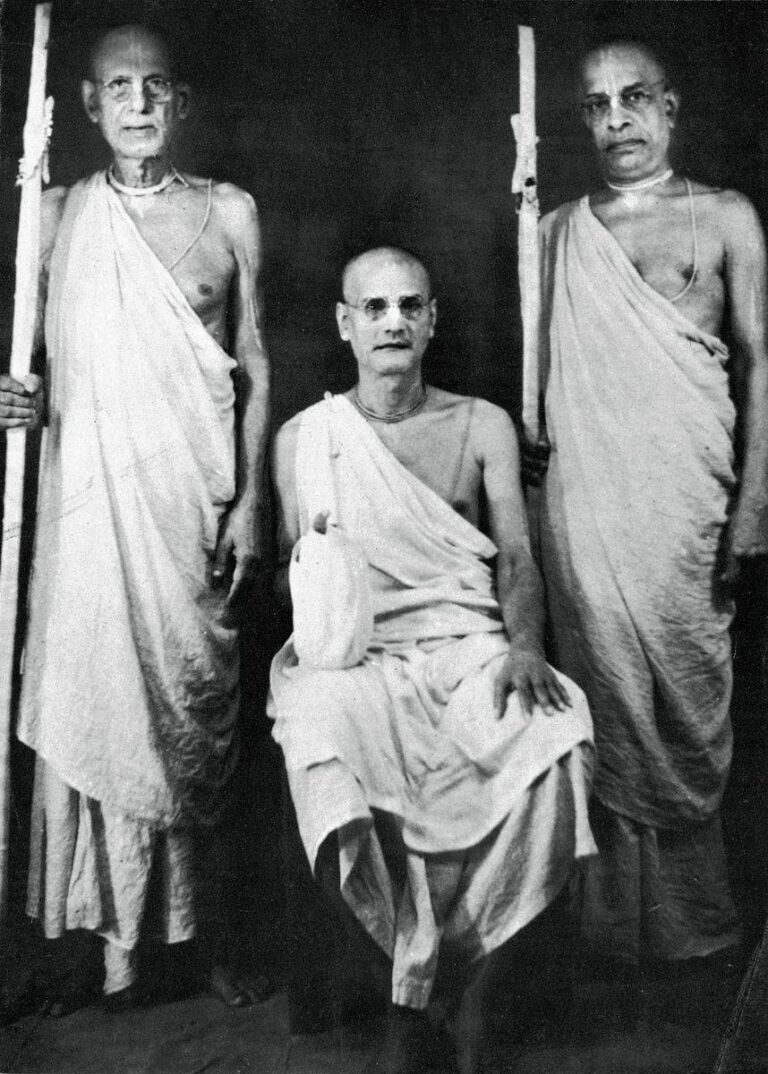‘Meaning’ and truth can, then, be conceptualised not as single, fixated and decidable, but as phenomena in a relatively open space of uncertainty and possibility. And communication of and theorising about them can, accordingly, be meaningfully conducted as suspensive rather than conclusive activities – in criticism and philosophy and any other field. Thinking, interpreting and communicating can, and sometimes should, take the form of vacillation, between specific options of truth, solutions and conclusions to problems. They should also involve, on the one hand, decision and determination of meaning and, on the other, acknowledgment and reproduction of the openness and uncertainty. This is a balancing act, then, by which the thinker and writer attempts to determine and instill specific meanings in a texts while also accepting, representing and exploring uncertainty.

The appreciation of (as well as the frustration with) uncertainty of meaning seems to be an almost intuitive human one. The value of uncertainty – its meaning-productive function, its effect of reader-engagement and its disruptive effect on existing meaning-systems and conventions – is often implicitly agreed upon among scholars, critics and readers in relation to fiction and creative writing. Indeed, positive critical judgements and valuations of literature often rely on precisely an appreciation of the uncertainty of meaning and its effect of stimulating bewilderment. And for good reasons, as I have tried to argue. To be sure, philosophy differs from narrative fiction, but there are also strong commonalities between the two. There should be room for uncertainty, obscurity and experimentation in moral philosophy and practical ethics. Uncertainty and obscurity are not the same as vagueness and imprecision. Indeed, uncertainty sometimes leads to a greater degree of precision and adequacy in the representation of reality and truth. It is important in this context also to stress the value of diversity in forms of communication in philosophy. Different modes of representation have different advantages and disadvantages; different subject matters call for different forms of communication just as different contexts of communication and audiences do. Philosophical writing should not be restricted and monocultural, but ideally characterised by a variety of modes of expression, experiments and creativity. There is good and bad writing in all genres and traditions, and in continental as well as analytical philosophy.
Uncertainty and obscurity are not, then, simply meaning-obstructive. There are productive forms of uncertainty – and there are unproductive forms.
For a fuller argument for the value of textual uncertainty and a map of central literary theories and concepts of uncertainty, see: Mette Leonard Høeg: Uncertainty and Undecidability in Twentieth-Century Literature and Literary Theory (Routledge, 2022).
Another upside to the resistance to interpretive closure and fixation of meaning in communication of philosophy is that it allows for a greater degree of experimentation and creativity. There can be value in not knowing exactly where one is going with a theory and an argument, to keep meanings open, to abstain from conclusion. Theoretical uncertainty can be highly meaning-productive for the thinker – and textual uncertainty likewise for the reader. Uncertainty can work to modify the awareness of the reader. It can prompt a reflective and critical reading-mode and be used to invite the reader to think along, instead of presenting her with final solutions, i.e. to participate in the production of meaning and theoretical experimentation of a text. Gaps and points of uncertainty and obscurity are highly reader-engaging. Uncertainty and obscurity in a text can activate the reader’s ability to recognise and reflect on the uncertainties of the text itself and of reality and communication in general. It can facilitate a deeper involvement of the reader with the philosophical content of a text and make the reader move from a non-reflective to a reflective and critical mode of reading and thinking, create meta-awareness about interpretational choices and the readerly inference and co-production of meaning. It can make reading a more conscious and self-reflective act and stimulate critical and independent thinking
To be clear, this blogpost is not a defense of sophistry, value relativism or nihilism. I am not proposing to prioritise persuasiveness, effect or entertainment over precision and truth. Rather, I want to highlight that truth is a complex phenomenon that requires complex conceptualisation to be represented adequately in language and communication. To be precise, clear and lucid sometimes requires respecting and linguistically and conceptually reproducing the incoherence, obscurity and uncertainty of reality. We are always only approximating a full understanding of truth and reality, and we will likely never have a full overview of or exhaustive insight into it. We will continue to make mistakes in our theorising and wrongful conclusions that will have to be revised or rejected in the light of new knowledge, and there will always be blanks, gaps of uncertainty in our understanding and accounts. Indeed, as Ingmar Persson pointed out in the congress’ opening talk, it is likely that not only will moral philosophy remain inconclusive, but its disagreement will even increase. Philosophy is becoming ever more observant of the complexity of matters, increasingly drawing new and more nuanced distinctions; and at the same time the conditions of modern life, new technologies etc. continue to create more problems.
Written by Mette Leonard Høeg
In most fields it has historically been the convention to try to eliminate or reduce the inherent uncertainty in communication in order to establish as strong a sense of coherence of meaning as possible. But the 20th century saw a new awareness of the uncertainty of the physical world and human existence. Notions and concepts of undecidability became absolutely central in many fields of research, such as quantum theory in physics, psychoanalysis in psychology and phenomenology in philosophy. And in literature and literary theory, uncertainty started to be foregrounded in an unprecedented manner, used as a structuring principle, a guiding philosophical idea and theme and a primary conveyor of meaning. In Modernist literature and much of the literary theory of the 20th century, uncertainty came to function as criterion for truthful rendering and representation of reality and human experience – reflecting the insight that interpretation and representation of reality are necessarily forms of reduction and simplification of those very phenomena.
The uncertainty and obscurity of reality is in a sense a precondition for any meaningful utterance, a prerequisite for any attempt at stabilising and fixating meaning in a system of thought, with concepts and language. The attempt to determine meaning comes from a perceived need for it and of a sense of a preceding unclarity. But it is not just reality and existence that entails uncertainties and unknowns. Language/discourse is itself characterised by a fundamental uncertainty that makes a precise and fully coherent representation of reality and truth – even if we had full insight into these – impossible. Language is (in)famously limited in its capacity to represent reality, and all communication entails some degree of uncertainty, incoherence and openness of meaning. It is misleading and unnecessary to see this only as a problem. Indeed, it can be seen and valued as a quality.
It is noteworthy that Jacques Derrida, arguably the most vilified representative of poststructuralism and deconstruction, established a valuable distinction in this context, namely between undecidability and indeterminacy. Derrida focuses on undecidability as a textual feature (from the point of departure of deconstruction’s radically widened definition of a ‘text’). Basing his concept of undecidability on Gödel’s theory of the incompleteness inherent in all seemingly closed and coherent systems, he presents undecidability as a fundamental trait in the system of language and a precondition for all meaningful discourse. While one of the main purposes of Derridean deconstruction is to demonstrate the fundamental uncertainty of reality and discourse and thereby to point out the arbitrariness of determined meaning and hierarchisation of meanings in texts, its aim is not to reject meaning altogether or to advocate for any sort of relativism as it has often been accused of. Derrida presents undecidability as a restricted form of uncertainty, contrasting it to the notion of indeterminacy in order to refute the accusation that deconstruction leads to relativism of meaning. Undecidability here is delimited in the sense that the possibilities between which the meaning of a text oscillates are in every discursive situation always determined and stable. Indeterminacy, in contrast, is a type of unlimited uncertainty of meaning without any demarcation, i.e., uncertainty in the sense of there being no identifiable, determinate possibilities of interpretation and so no possibility of oscillation or interpretive movement between options of meaning, no possibility of concluding anything, not even tentatively or provisionally.
This agreement on the intrinsic value of clarity happened at a gathering with the goal of determining the point of moral philosophy, i.e. the meaning and purpose as well as tasks and aims of academic philosophy – generally speaking, in the specific cultural environment of today and in the future. As such it was part of a sympathetic effort to take responsibility for making philosophy accessible and effective and for disseminating the insights and advances in research in the academic sphere to the broader public as well as to policy makers in the best, most fruitful ways. Nevertheless, this near-unison appraisal of clarity seems to entail a severe simplification of the complex and multifaceted nature of good, productive, effective and true thinking and communication and to overlook the value of obfuscation and unresolvedness in philosophical – and any other kind of – writing.
At the What’s the Point of Moral Philosophy congress held at the University of Oxford this summer, there was near-consensus among the gathered philosophers that clarity in moral philosophy and practical ethics is per definition good and obscurity necessarily bad. Michael J. Zimmerman explicitly praised clarity and accessibility in philosophical writings and criticised the lack of those qualities in especially continental philosophy, using some of Sartre’s more recalcitrant writing as a cautionary example (although also conceding that a similar lack of coherence can occasionally be found in analytical philosophy too). This seemed to be broadly and whole-heartedly supported by the rest of the participants.
“I do not believe I have ever spoken of ‘indeterminacy’, whether in regard to meaning or anything else. Undecidability is something else again. […] I want to recall that undecidability is always a determinate oscillation between possibilities (for example, of meaning, but also of facts). These possibilities are themselves highly determined in strictly defined situations (for example, discursive – syntactical or rhetorical – but also political, ethical, etc.). They are pragmatically determined. The analyses that I have devoted to undecidability concern just these determinations and these definitions, not at all some vague ‘indeterminacy’. I say ‘undecidability’ rather than ‘indeterminacy’ because I am interested more in relations of force, in differences of force, in everything that allows, precisely, determinations in given situations to be stabilized through a decision of writing (in the broad sense I give to this word, which also includes political action and experience in general). There would be no indecision or double bind were it not between determined (semantic, ethical, political) poles, which are upon occasion terribly necessary and always irreplaceably singular. Which is to say that from the point of view of semantics, but also of ethics and politics, ‘deconstruction’ should never lead either to relativism or to any sort of indeterminism.” (148–9, Limited Inc. (Evanston, IL: Northwestern University Press; 1988)).


